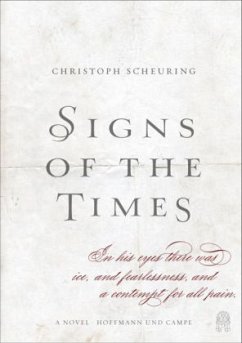Saxony in about 1830: in the towns the smoke is already rising from the stacks of the first factories. The bourgeoisie is the motor of progress. Art and literature are burgeoning everywhere. People are hoping that science will help the world regain its health. Out in the country, by contrast, life is still very much in the way of the Middle Ages. Socage leaves the peasants with hardly anything but the bare necessities, craftsmanship is stifled by the laws of the guilds, and up in the hills the day labourers eat chestnuts and bake bread with wood flour. In these circumstances, a child counts for less than a goat in the shed. The people's distress is so great that they gather in flocks and leave their homeland, hoping to get a place on a sailing ship that will take them to America. It is against this backdrop that Christoph Scheuring tells the tales of three boys. Each has a special gift of his own. Each is destined to achieve great things. Yet none of them seems strong enough to survive in this world. "Signs of the Times" is a novel set in one of the most exciting phases of German history. The topics it tackles are the major questions of the day. Is there such a thing as justice? What is beauty? How can Man manage to become one with himself and with Creation? 200 years down the line, the answers have lost none of their topicality.
Bitte wählen Sie Ihr Anliegen aus.
Rechnungen
Retourenschein anfordern
Bestellstatus
Storno








